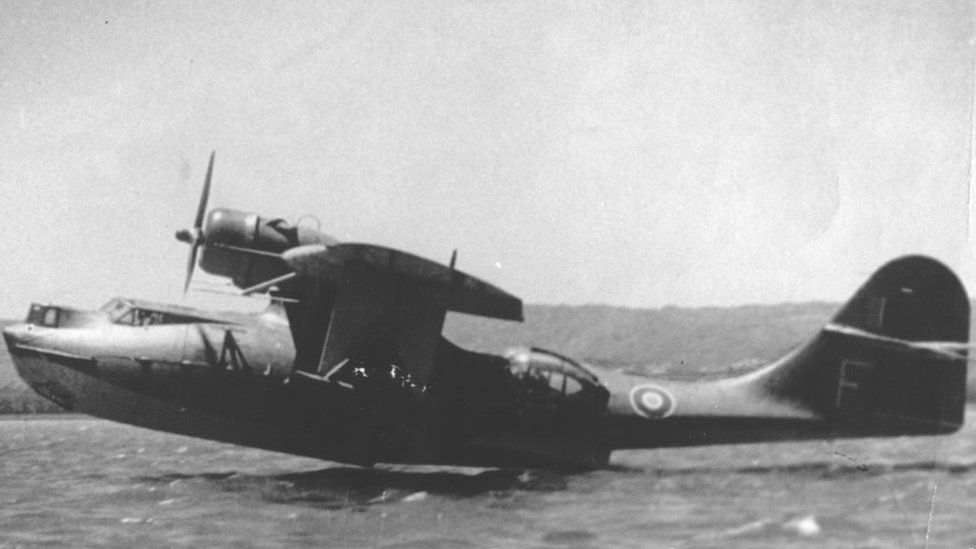World War Two seaplane found at bottom of Lough Erne
- Published

The remnants of a World War Two seaplane have been discovered at the bottom of Lough Erne in County Fermanagh.
It is believed to be a Catalina, also known as a "flying boat".
The seaplanes played a crucial role in the area during WW2, protecting Allied shipping convoys in the Atlantic.
Marine experts said they think the aircraft may have crashed into the lough and therefore the site is being protected as a potential war grave.
'Underwater heritage'
The submerged aircraft was first spotted during a specialist survey of the lough last year, when surveyors reported an "anomaly" under the water.
Members of the Charts Special Interest Group (CSIG) reported their findings to the authorities, saying they believed they had found a Catalina lying at a depth of about 45m (148ft).
A sonar survey of the site was then carried out in April this year to check if their theory was correct.
It was arranged by Rory McNeary, a maritime archaeologist working for Stormont's Department of Agriculture, Environment and Rural Affairs (DAERA).
On 8 April 2019, staff from DAERA's marine and fisheries division used sonar technology to confirm the identification of the Catalina aircraft.
Mr McNeary paid tribute to CSIG members for detecting a long-lost piece of WW2 history.
"Had the site not been reported, a unique underwater heritage asset would have been overlooked," he said.
"Studying the seaplane will be of immense interest to professional and amateur historians alike."
'Possible human remains'
The public has been warned that the site is now automatically protected by law.
Under the Protection of Military Remains Act 1986, it is an offence to tamper with, damage, move or unearth any remains without a licence.
"Given that there is still the possibility of human remains and unexploded ordnance being found at the site we would ask people to fully recognise its protected status," said Mr McNeary.
Catalina pilots provided much-needed air cover for Allied convoys in the Atlantic between 1941 and 1945.
They were deployed to the nearby Royal Air Force (RAF) base at Castle Archdale in County Fermanagh.
- Published26 September 2011
- Published29 November 2018
- Published29 June 2019
- Published13 May 2017